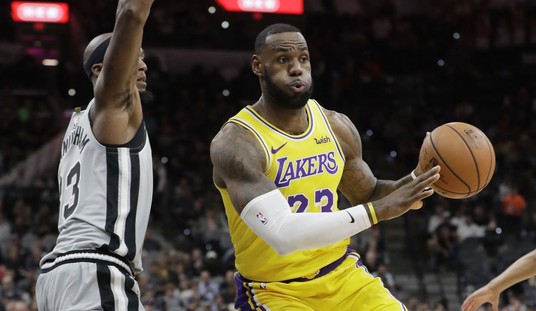Testimony on Wednesday and Thursday from the Kenosha detective in charge of the investigation into shootings by Kyle Rittenhouse left more than a few questions unanswered about what evidence is missing from the trial.
Rittenhouse is being tried for killing two people and wounding a third on August 25, 2020, the third night of riots in Kenosha, Wisconsin. He has pleaded self-defense for all three shootings.
In the first shooting, an angry, violent protester, Joseph Rosenbaum, who had threatened the 17-year-old Rittenhouse if he found him alone, chased Rittenhouse and was shot apparently as he lunged for the teen’s rifle.
Anthony Huber was shot as he whacked Rittenhouse over the head with his skateboard, as Rittenhouse lay on the ground.
And the third person shot that night was Gaige Grosskreutz, who held his phone to take video and then pulled a pistol on Rittenhouse. He was shot in the arm.
The defense wants Grosskreutz’s video from his phone that night, but the prosecutor, working with the chief investigator, Detective Martin Howard, scuttled the video in apparent contravention of typical police homicide protocol.
As PJ Media has previously reported, the Rittenhouse defense team has already brought up questions about the disappearance of high-definition video taken by an FBI surveillance aircraft the night of the riot and shootings and then somehow lost before it made its way to the defense.
During cross examination, Rittenhouse’s attorney asked the detective about how cell phone evidence was typically handled.
A use-of-force expert, attorney Andrew Branca, wrote over at Legal Insurrection that Detective Howard “violated a number of the departments’ normal investigative practices with respect to this case, while [the defense suggests] being in unusually close and improper communication with ADA Binger himself—and, remarkably, shortly thereafter getting the plum assignment for such an inexperienced detective of being assigned the lead investigator on the Rittenhouse case.”
Indeed, at some point, Rittenhouse turned over his phone to police and gave them his personal code to get in. Police could either get a warrant for the information or get the permission of the phone owner.
But that didn’t happen in Grosskreutz’s case.
Rittenhouse and Grosskreutz had an earlier interaction after Joseph Rosenbaum was shot.
Grosskreutz held out his phone to record Rittenhouse as he ran toward the police line.
Branca picks up the legal parrying in the courtroom between defense attorney Mark Richards and the detective over that previous interaction.
It was this earlier contact between Kyle and Gaige Grosskreutz that Attorney Richards was asking Detective Howard about when the ADA Binger raised an objection that triggered argument sufficient to justify ending the day at that late point in the afternoon.
During this exchange, Grosskreutz runs right up to the fleeing Kyle, cell phone camera in Kyle’s face, and asks, “Did you shoot that guy?” The response that Kyle made, in real life, was words to the effect of “I had to, it was self-defense.”
It turns out that Deputy District Attorney Thomas Binger decided to keep Grosskreutz’s phone contents from that night a secret because of his status as a victim under Marcy’s Law.
The issue caused a hubbub in the courtroom, and due to the time, testimony was suspended until Thursday morning.
On Thursday morning, defense attorney Richards elicited in testimony from the detective that police had received a search warrant for Grosskreutz’s phone but never served it. When Richards asked why, the detective said it was because he wasn’t “comfortable with Marcy’s Law.”
It was at this point that Richards pointed at the prosecutor and demanded of the detective, “He’s nodding at you now, isn’t he?”
That made everyone sit straight up in their seats.
Related: Defense Claims the FBI Is Hiding More Spy Video in Rittenhouse Trial
The point he was making was that the detective who was only a year on the job as a detective, and ten as a street officer, and was appointed to head the biggest case in Kenosha, was taking his investigative cues from the deputy DA, keeping evidence out of the trial that might be exculpatory.










Join the conversation as a VIP Member